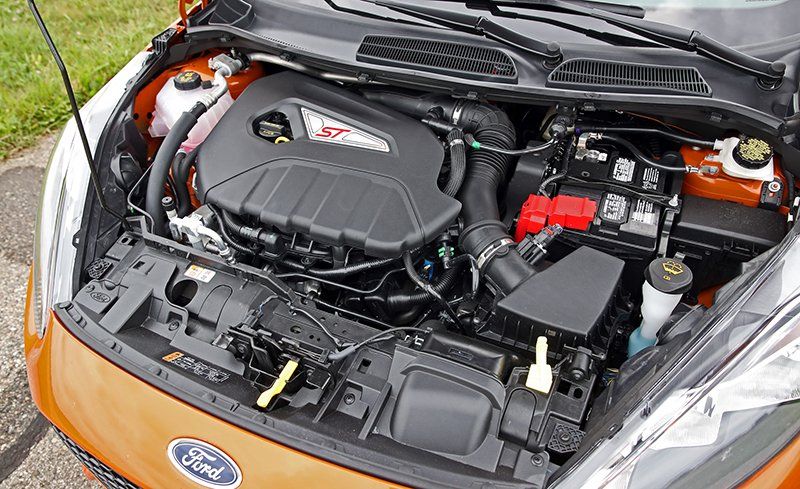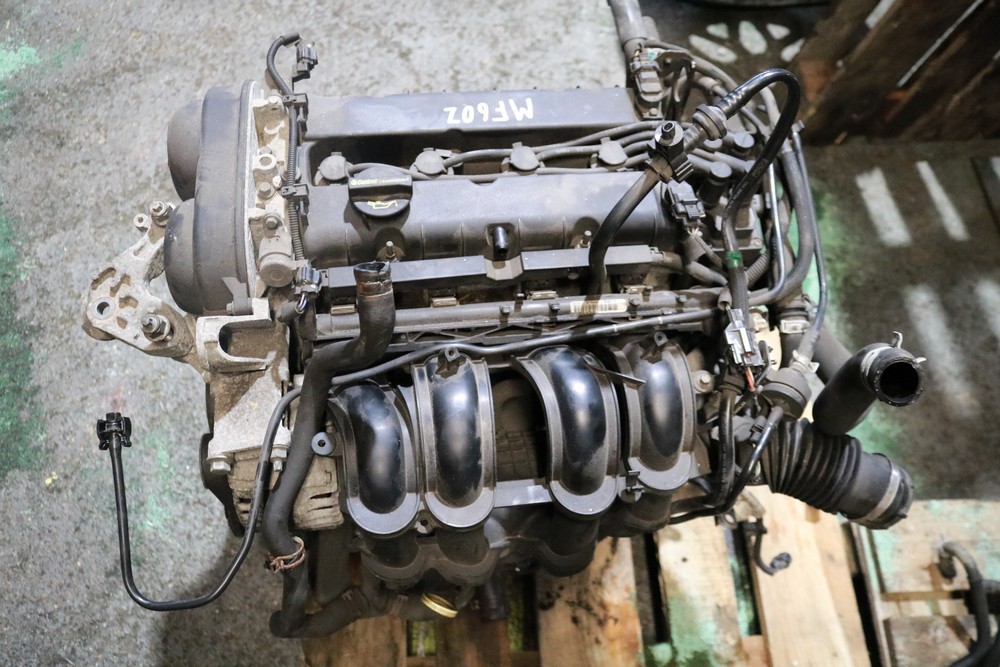Common Issues with the Ford Fiesta Engine and How to Fix Them
Common Issues with the Ford Fiesta Engine and How to Fix Them
Blog Article
Opening the Power of Engines: A Comprehensive Guide to Efficiency and Efficiency
Comprehending the intricate mechanics of engines is vital for both performance lovers and daily chauffeurs. The answers may redefine our technique to engine performance and performance in means that are both informing and essential.
Recognizing Engine Basics
What constitutes the fundamental technicians of an engine? At its core, an engine is a device designed to convert gas into mechanical power via a series of controlled surges or combustion processes.
The crankshaft after that changes this linear movement right into rotational power, which eventually powers the lorry. The camshaft manages the opening and closing of the valves, managing the consumption of air and gas and the expulsion of exhaust gases. Furthermore, the engine counts on a thoroughly calibrated fuel-air combination, ignition system, and cooling system to make certain optimal performance and effectiveness.
Recognizing engine fundamentals also entails acknowledging the value of engine cycles, such as the four-stroke cycle, that includes consumption, compression, exhaust, and power strokes. Each phase is crucial in ensuring the engine functions efficiently and efficiently. Mastery of these fundamental technicians lays the foundation for checking out a lot more complex engine dynamics and efficiency metrics, vital for maximizing both power outcome and effectiveness.
Trick Efficiency Metrics
Trick efficiency metrics are necessary for evaluating an engine's performance and power outcome, giving important understandings for both makers and consumers. These metrics work as standards for engine efficiency, enabling for notified decisions in investing in, manufacturing, and layout.
Among the main metrics is horsepower, which evaluates the engine's ability to perform work over time. Torque, determined in pound-feet, is an additional important statistics that shows the engine's rotational pressure, directly impacting velocity and towing capability. Fuel effectiveness, usually measured in miles per gallon (MPG) or litres per 100 kilometers (L/100km), analyzes exactly how successfully the engine transforms fuel into movement, affecting operational prices and ecological factors to consider.
Furthermore, thermal effectiveness steps exactly how well an engine transforms gas energy into beneficial job, exposing understandings right into power losses mainly with warmth. Exhaust levels, consisting of CO2 and NOx, are also crucial, reflecting the engine's environmental impact and conformity with governing standards.

Tuning Strategies for Performance
Tuning strategies play a significant role in boosting engine performance by enhancing performance metrics determined in earlier discussions (ford fiesta engine). Numerous approaches exist to tweak an engine, each contributing to boosted gas economy and reduced discharges
One reliable strategy is adjusting the air-fuel proportion, ensuring the engine operates within the optimal combustion regimen. A leaner combination can enhance gas efficiency, but it has to be stabilized to avoid misfires or engine knock. Furthermore, reprogramming the engine management system can alter specifications such as ignition timing, which even more improves effectiveness while maintaining power output.
One more vital approach entails changing the consumption and exhaust systems. Upgrading to high-performance air filters and exhaust headers can reduce back pressure, helping with much better air movement. This enables the engine to take a breath more freely, resulting in enhanced combustion efficiency.
Moreover, the application of innovative tuning tools, like dyno screening, supplies precise information that allows targeted modifications. Consistently monitoring these performance metrics makes certain that tuning initiatives yield the desired effectiveness end results. Collectively, these methods not only boost engine efficiency yet likewise add to lasting sustainability in engine operations.
Upkeep for Ideal Efficiency
Routine engine maintenance is vital for achieving optimum performance and longevity. A properly maintained engine not only runs efficiently yet likewise minimizes the danger of expensive fixings and failures. Trick elements needing normal attention include oil, filters, belts, and stimulate plugs.
Altering the engine oil at recommended periods is essential, as oil lubes relocating parts and prevents This Site getting too hot. Changing oil and air filters guarantees that impurities do not impair engine function. Overlooking these parts can lead to minimized efficiency and potential engine damage.
Furthermore, examining and changing worn belts and hoses is important to avoid unexpected failures. Timing belts, particularly, should be changed according to the manufacturer's schedule to prevent tragic engine damages.
Ignition system must also be examined and changed as needed, considering that they play a vital duty in ignition and fuel effectiveness.
Future Patterns in Engine Technology
Embracing developments in innovation, the future of engine layout is positioned to change performance and effectiveness across different applications. Among the most significant trends is the shift towards electrification. Hybrid and totally electrical powertrains are coming to be significantly mainstream, supplying minimized emissions and enhanced gas effectiveness. This shift is not simply a pattern however a necessity driven by governing stress and customer demand for sustainable remedies.
Moreover, advancements in products science are bring about lighter, more powerful components that enhance engine efficiency while decreasing energy consumption. Advanced manufacturing techniques, such as 3D printing, permit for the production of intricate geometries that improve airflow and thermal administration, hence optimizing burning procedures.
Furthermore, the combination of expert system and artificial intelligence is set to change engine diagnostics and efficiency adjusting. These technologies can evaluate substantial quantities of information in genuine time, enabling anticipating maintenance and customized performance improvements.
Verdict
In verdict, unlocking the power of engines needs why not try this out a comprehensive understanding of their technicians and efficiency metrics. Implementing efficient adjusting strategies and adhering to routine upkeep methods substantially enhance engine capacities.
Furthermore, the engine depends on a carefully adjusted fuel-air mixture, ignition system, and cooling down system to ensure optimum performance and performance.
Recognizing engine essentials additionally involves identifying the significance of engine cycles, such as the four-stroke cycle, which includes intake, compression, exhaust, and power strokes. Mastery of these fundamental auto mechanics lays the foundation for exploring more complex engine characteristics and performance metrics, crucial for maximizing both power output and performance.

Welcoming innovations in innovation, the her explanation future of engine design is positioned to change efficiency and efficiency across numerous applications.
Report this page